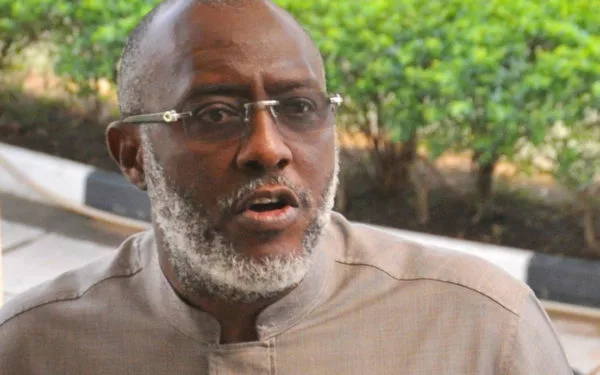Former national publicity secretary of Peoples Democratic Party (PDP) Chief Olisa Metuh has said the new cashless policy by the Central Bank of Nigeria (CBN) is counter productive and an inconvenience to poor Nigerians.
Metuh in a statement said it is inconceivable that in an economy bedeviled with random and multiple bank charges, the Nation’s Central Bank will decide to inflict the lowest level of citizens with a mandatory acquisition of Point of Sales(POS) machines.
He said the new policy exposes the poor to multiple deductions by banks and may be an opportunity to fleece the people.
He therefore urged the CBN to mitigate these measures with a freeze on withdrawal charges by banks and introduce policies to ensure that transfers and transactions are not impeded by network problems.
“How do you expect Nigerians to patronise the banana and fruit sellers? Should we stop buying from petty traders because of network delays in effecting transactions? What of the attendant ceaseless and multiple deductions from the accounts of these petty traders? What of the security scare of waiting to confirm payments by the roadside?
“Is this a good time to effect a sudden, immediate and almost total cashless policy in our economy?
Metuh, who noted that many Nigerians have witnessed cash transactions even in developed economies of the world, said there is no thriving economy where people are restricted from withdrawing less than $30 in a day and $120 in a week.
“This new directive by the CBN is as draconian as it is counter-productive to self employment at the lowest cadre.
“Finally, I call on the CBN to mitigate these measures with a freeze on withdrawal charges by banks and introduce policies to ensure that transfers and transactions are not impeded by network problems.
“Otherwise the policy will be reminiscent of Idi Amin’s order to print more money in the old Uganda.
The CBN should not allow the lives of very poor Nigerians to be frustrated to such an extent as openly embracing crime as an alternative to mean policies of the government.
“At times like this, we all expect our elected and appointed representatives to defend the interest of the ordinary people. A society that does not care for the poor will eventually witness anarchy and violent revolt,” he said.



